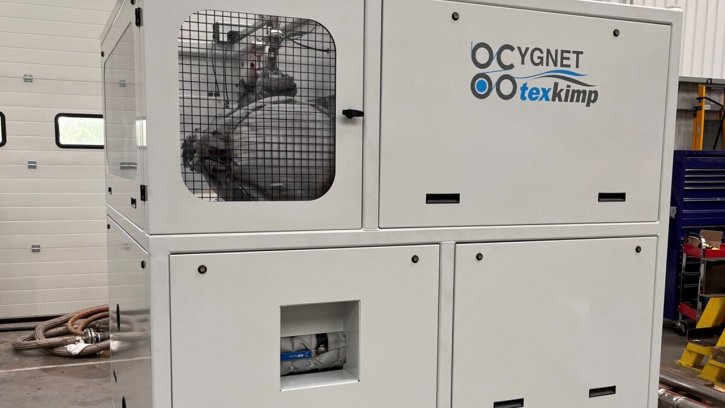
£60 million GEIC opens in Manchester
Technology exploits pressurised steam in a process to separate and reclaim fibres and resins from composite parts.

10th September 2024
Innovation in Textiles
|
United Kingdom
A Deecom composites recycling solution built by Cygnet Texkimp and commissioned by the Henry Royce Institute was showcased at the recent International Composites Summit held from September 4-5 in Milton Keynes, UK.
The lab-scale Deecom materials reclamation unit is to be installed at the University of Manchester where it will form part of a pioneering programme of R&D led by the institute’s materials scientists to investigate the properties of reclaimed fibres, the potential for successful resin recovery, and opportunities for the reuse of both elements.
Deecom, created by engineering firm B&M Longworth and developed by Cygnet Texkimp, uses pressurised steam in a process called pressolysis to separate and reclaim constituent fibres and polymer resins in high-quality forms for reuse in the manufacture of new composites or in other industries.
The Henry Royce Institute is the UK’s national institute for advanced materials research and innovation. Headquartered at the University of Manchester, it is a partnership of nine leading institutions.
“We’re delighted to bring this capability on board and to make it available to the UK’s academic community and their industrial partners,” said its Foundation Industries Challenge lead Bill Sampson. “It will enable collaborative investigations as we progress our understanding of the challenges and opportunities to develop truly sustainable and circular processes for today’s composite materials systems and those of the future.”
“As one of the first solely composites-focused research units to be commissioned under the new partnership between Cygnet Texkimp and B&M Longworth, this compact and flexible machine will help to accelerate learning around the fundamentals of value recovery from composite systems, not only in terms of the fibre but also the resin chemistry,” added Gareth Davies of Cygnet Texkimp.

Business intelligence for the fibre, textiles and apparel industries: technologies, innovations, markets, investments, trade policy, sourcing, strategy...
Find out more